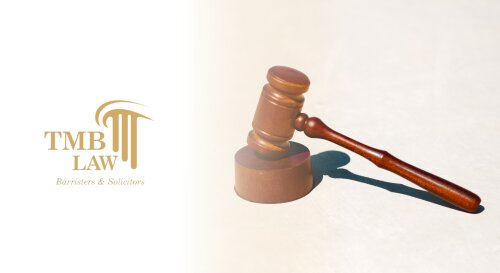Best Nursing Home Abuse Lawyers in Oshawa
Share your needs with us, get contacted by law firms.
Free. Takes 2 min.
List of the best lawyers in Oshawa, Canada
About Nursing Home Abuse Law in Oshawa, Canada
Nursing home abuse refers to the mistreatment or neglect of elderly residents in long-term care facilities. This can encompass physical, emotional, sexual, and financial abuse, as well as neglect. In Oshawa, Canada, as in other parts of Ontario, numerous protections are in place to safeguard the well-being of nursing home residents. Nursing home abuse law is designed to hold caregivers and institutions accountable, ensuring that residents live in a safe and respectful environment.
Why You May Need a Lawyer
There are several common situations where legal assistance might be necessary for nursing home abuse cases:
- Recognizing Signs of Abuse: If you suspect that your loved one is being abused or neglected but are unsure how to proceed.
- Reporting Abuse: A lawyer can help you properly report the abuse to the appropriate authorities to ensure it is documented and addressed.
- Legal Representation: If you need to file a lawsuit for damages due to abuse or neglect.
- Understanding Rights: To understand the rights of nursing home residents under Canadian and Ontario law.
- Negotiating Settlements: Assistance in negotiating settlements with nursing homes or their insurance companies.
- Navigating Complex Regulations: Guidance through the complex regulations and legal standards governing nursing home care.
Local Laws Overview
In Oshawa, nursing home abuse laws are part of the broader legal framework governed by both provincial and federal regulations. Key aspects include:
- Long-Term Care Homes Act, 2007: Ontario legislation designed to improve the quality of care and safety for residents in long-term care facilities.
- Nursing Home Complaints: The Ministry of Long-Term Care investigates complaints against nursing homes.
- Residents' Bill of Rights: This Bill ensures that residents are treated with respect, privacy, and dignity, and details their rights to proper care and autonomy.
- Criminal Code of Canada: Severe cases of abuse might also fall under criminal law, leading to prosecution.
Frequently Asked Questions
1. What are common signs of nursing home abuse?
Some common signs include unexplained injuries, sudden changes in behavior, poor hygiene, weight loss, and signs of depression or withdrawal.
2. How do I report nursing home abuse in Oshawa?
You can report abuse to the Ministry of Long-Term Care, local authorities, or seek legal advice to ensure it is handled appropriately.
3. Can my loved one be moved during an abuse investigation?
This depends on the situation. Immediate danger might require relocation for safety; consult a lawyer to understand the best course of action.
4. What compensation is available for nursing home abuse victims?
Compensation can include medical expenses, pain and suffering, relocation costs, and sometimes punitive damages.
5. How long do I have to file a lawsuit for nursing home abuse?
In Ontario, the general limitation period is two years from the date you became aware of the abuse, but it's best to consult a lawyer for specific advice.
6. Can a nursing home retaliate if I file a complaint?
Retaliation is illegal. Residents have the right to voice complaints without fear of punitive actions.
7. Does the Long-Term Care Homes Act cover private nursing homes?
Yes, it covers both publicly funded and privately operated long-term care homes in Ontario.
8. What should I document when I suspect abuse?
Document any signs of abuse, conversations with nursing home staff, medical reports, and take photos if possible.
9. Will a trial be necessary for an abuse case?
Not always. Many cases are settled out of court, but having a lawyer means you're prepared for trial if necessary.
10. How can I protect my loved one's privacy during a legal case?
Lawyers follow strict confidentiality rules to protect their clients' privacy, and there are legal provisions to keep sensitive information secure.
Additional Resources
If you're seeking more information or support, the following resources might be helpful:
- Ministry of Long-Term Care - Ontario
- Long-Term Care Action Line
- Advocacy Centre for the Elderly (ACE)
- Ontario Long Term Care Association (OLTCA)
- Elder Abuse Ontario
Next Steps
If you need legal assistance regarding nursing home abuse in Oshawa, follow these steps:
- Consult a Lawyer: Seek out a lawyer specializing in elder law or personal injury with experience in nursing home abuse cases.
- Prepare Documentation: Gather all relevant documents, evidence, and records pertaining to the abuse or neglect.
- File a Complaint: Report the abuse to the appropriate authorities as advised by your legal counsel.
- Pursue Legal Action: If necessary, your lawyer will guide you through filing a lawsuit to seek justice and compensation.
Taking the first step can often be the hardest, but with the right legal support, you can ensure the safety and well-being of your loved one, and hold those responsible accountable for their actions.
Lawzana helps you find the best lawyers and law firms in Oshawa through a curated and pre-screened list of qualified legal professionals. Our platform offers rankings and detailed profiles of attorneys and law firms, allowing you to compare based on practice areas, including Nursing Home Abuse, experience, and client feedback.
Each profile includes a description of the firm's areas of practice, client reviews, team members and partners, year of establishment, spoken languages, office locations, contact information, social media presence, and any published articles or resources. Most firms on our platform speak English and are experienced in both local and international legal matters.
Get a quote from top-rated law firms in Oshawa, Canada — quickly, securely, and without unnecessary hassle.
Disclaimer:
The information provided on this page is for general informational purposes only and does not constitute legal advice. While we strive to ensure the accuracy and relevance of the content, legal information may change over time, and interpretations of the law can vary. You should always consult with a qualified legal professional for advice specific to your situation.
We disclaim all liability for actions taken or not taken based on the content of this page. If you believe any information is incorrect or outdated, please contact us, and we will review and update it where appropriate.









